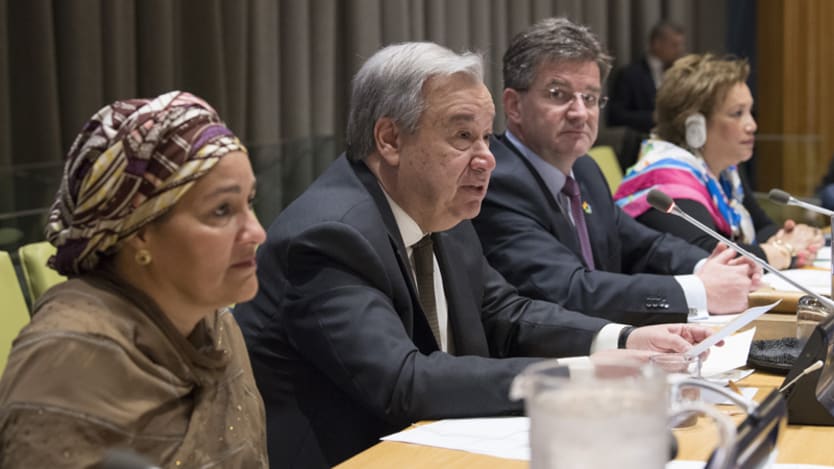
UNITED NATIONS — The United Nations General Assembly approved a new reform strategy that offers the “most ambitious and comprehensive transformation of the U.N. development system in decades,” U.N. Chief António Guterres said Thursday.
The plan for management reform will formally launch in January 2019, with the aim of simplifying policies and procedures, and synthesizing U.N. positions of authority.
See more related topics:
► A new class of UN leaders takes the helm
► DSG Amina Mohammed clarifies reform plans for UN's role in 'messed up' world
In practice, that will mean strengthening the roles of 129 resident coordinators — “one of the most challenging jobs in the United Nations,” Guterres said — who are now covering 165 countries.
The resident coordinators are part of a new “dual reporting model” aimed at avoiding duplication of work among U.N. country team members tasked with reporting to both their own agencies and offices, while also reporting to resident coordinators.
“We now can resolve a historic deficit in our coordination function, and institutionalize what works, across the board,” Guterres said in his prepared remarks. “National ownership and a strong focus on accountability and results will guide the system every step of the way. Our teams on the ground will now be better able to tailor their presence, capacities, skill sets, and overall response to your priorities.”
The United States — a supporter of U.N. reform under the Trump administration — was one of the countries that spoke out in favor of the changes.
“The U.S. expects reforms we adopt today could lead to less bureaucracy and more performance,” said Ambassador Kelley Currie, the U.S. representative on the Economic and Social Council of the U.N. and the alternate representative of the U.S. to the U.N. General Assembly. “U.N. reform has become a matter of necessity … the working culture of the U.N. needs to change, to build together system-wide confidence and trust,” she added, speaking at the General Assembly afternoon session.
Other countries recently called for a change in institutional culture, better transparency to U.N. member states, and a greater focus on mandates, rather than cost cutting. The European Union has reportedly proposed better coordination within the U.N. to fight sexual exploitation, abuse, and harassment.
The reorganization plans will create a new department of management strategy, policy, and compliance, and a department of operational support to aid entities in “weak environments,” U.N. reform and 2030 development agenda expert Ana Maria Lebada wrote recently.
Funding for this plan will not come out of the U.N. core central budget, but rather will be supported by a new dedicated fund, backed by member states. The plan calls on member states to offer $35 million to the resident coordinator system, and to also support the existing Joint Fund for the 2030 Agenda with $290 million each year.
Guterres and his team rolled out details of management reform plans last year. Deputy Secretary-General Amina Mohammed then explained to Devex that rethinking development work and U.N. engagement is key to meeting the 2030 development agenda, with the recognition that challenges from migration to climate change are all “universal.”








